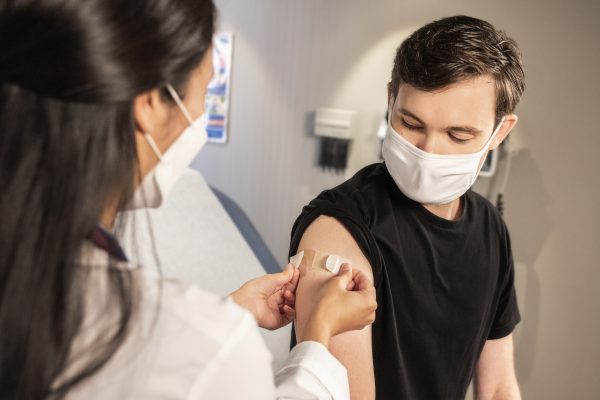Increasing Qualitative Methods
SSRS has been conducting a wide range of research over the past 25+ years to study the health and healthcare experiences of the general population, Medicare and Medicaid recipients, the uninsured, and other sub-populations that have been historically underserved in healthcare. We also conduct many studies among physicians, a wide range of other health care providers, and healthcare executives.
While surveys are essential to accurately reflect the needs, experiences and opinions of these populations, SSRS is increasingly using qualitative methods to:
- Ensure we are asking survey questions meaningfully
- Enhance our survey data and
- Help people’s unique voices and stories be heard
With concerns about the impacts of health disparities and inequities at the forefront, along with ongoing concerns about challenges experienced by our healthcare workforce (such as burnout, inadequate staffing, and rising healthcare costs affecting access to care), incorporating qualitative methods offers a powerful opportunity provide insights into these critical issues.
To support this increasing need, we are currently spearheading a strategic expansion of SSRS’s qualitative practice. Under our joint leadership, SSRS has been bringing new and creative solutions to help our clients better understand the public’s healthcare needs and experiences.
A few potential applications, inspired by recent SSRS research include:
- Exploratory research: Focus groups or individual depth interviews (IDIs) with healthcare executives to explore the potential of leveraging AI in hospitals and health systems, and the benefits and potential biases of incorporating these technologies.
- Instrument development: IDIs to develop new survey measures about usage of, satisfaction with, and barriers associated with telehealth visits.
- Instrument testing: For a survey on medical debt, cognitive interviews with those currently experiencing medical debt, to ensure the questions are comprehensive, appropriate, and readily understood.
- Post-survey analysis: Follow-up IDIs with targeted survey respondents to understand the experiences of those who reported feeling they were treated unfairly by a healthcare provider.
- Standalone qualitative, multi-method research: A 3-day asynchronous online bulletin board aimed at exploring the experiences, challenges/burdens, self-care methods of care partners for patients with Alzheimer’s Disease, followed by IDIs to delve more deeply into specific areas of interest.
Regardless of the selected methodology, qualitative research helps us provide our clients with an enriched understanding and deep insights that go beyond survey data on its own.
When conducting qualitative research on healthcare topics, here are some important considerations to keep in mind:
- Methods matter: When designing a qualitative study, it is important to align the methodology with the population of interest, research foci and research goals. Key choices include whether to conduct the research synchronously or asynchronously, whether to collect data in a group or among individuals, and whether to conduct the research in-person or use a virtual method.
- Sequential strategy: Qualitative research is flexible. Often, sequential phases can add value to a study, either pausing during data collection to incorporate learnings, or adding a sequential methodology, such as conducting individual in-depth interviews after an asynchronous board.
- Protection of participants: When asking about healthcare experiences, it is important to provide participants with informed consent about the voluntary nature of the research, how we will protect their identity and data, and how the results will be reported.
In today’s rapidly changing healthcare landscape, it is more important than ever to leverage qualitative methods to understand people’s motivations, attitudes, behaviors, and experiences.
We are excited to be contributing to this research and helping organizations use qualitative data to better meet their objectives.
Contact Robyn Rapoport or Darby Steiger to learn more about how the SSRS qualitative work can impact your next project.







